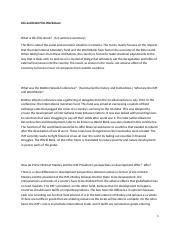Life And Debt Summary

In the documentary "Life and Debt," director Stephanie Black delves into the complex and often overlooked issue of debt in Jamaica, exploring how economic policies and global financial systems impact the lives of everyday people. This thought-provoking film sheds light on the consequences of neoliberal economic reforms and the struggles faced by a nation trying to navigate a globalized economy.
The Neoliberal Experiment in Jamaica

The documentary opens with a historical context, detailing the economic crisis that Jamaica faced in the late 1970s. As a response, the country embraced neoliberal reforms, opening its markets to foreign investment and trade. “Life and Debt” critically examines the impact of these policies, revealing the human cost of economic liberalization.
One of the key aspects highlighted is the removal of import tariffs, which, while intended to boost trade, had devastating effects on local industries. For instance, the removal of tariffs on dairy products led to a flood of cheaper imports, decimating the local dairy industry and leaving farmers struggling to survive.
The Impact on Agriculture and Industry
The film features interviews with farmers and industry leaders, showcasing the personal stories of those affected. One farmer, who had been in the dairy business for decades, is forced to sell his herd and land, unable to compete with imported dairy products. This narrative is echoed across various sectors, from clothing manufacturing to tourism, where local businesses struggle to keep up with foreign competition.
| Industry | Impact of Neoliberal Reforms |
|---|---|
| Agriculture | Removal of tariffs led to the collapse of local farming, leaving many farmers unemployed. |
| Manufacturing | Cheaper imports from China and other countries put local manufacturers out of business. |
| Tourism | Foreign resorts offering all-inclusive packages drew tourists away from local businesses. |

The Debt Spiral
As Jamaica’s economy struggled, the government turned to international lenders for support. The conditions attached to these loans, however, often required further economic liberalization, leading to a cycle of debt and dependency.
The film explores the irony of Jamaica's situation: despite its natural resources and vibrant culture, the country remains trapped in a cycle of poverty and debt, with little control over its economic destiny. The documentary suggests that while neoliberal policies were intended to bring prosperity, they have instead created a system where the nation's wealth is drained by foreign entities.
Global Economic Systems and Local Realities

“Life and Debt” also delves into the broader implications of global economic systems. It critiques the World Bank and the International Monetary Fund (IMF), arguing that their policies often prioritize financial interests over human development.
The Role of International Institutions
Through interviews with economists and activists, the film exposes the potential biases and shortcomings of these institutions. Critics argue that the IMF’s structural adjustment programs, which often accompany loans, can lead to harsh austerity measures and further economic hardship for the people they are meant to help.
| International Institution | Criticisms |
|---|---|
| World Bank | Accused of pushing neoliberal policies that benefit global corporations at the expense of local economies. |
| IMF | Their loan conditions often result in cutbacks on social services, which can hurt the most vulnerable populations. |
The Way Forward
The documentary doesn’t just critique; it also offers insights into potential solutions. It highlights the importance of local initiatives, such as community-based farming and sustainable tourism, which can provide alternatives to the current system. These initiatives not only generate income but also empower communities, giving them a sense of control over their economic future.
Moreover, "Life and Debt" calls for a reevaluation of the global economic order, suggesting that a more equitable system is possible. It advocates for policies that prioritize human well-being and local development over profit-driven, neoliberal agendas.
Conclusion: A Call for Economic Justice
“Life and Debt” is a powerful testament to the human stories behind economic policies. It underscores the need for a more just and equitable global economic system, one that considers the realities and needs of all people, not just the interests of the wealthy and powerful.
As the documentary's message resonates, it becomes clear that economic reforms are not just numbers on a spreadsheet; they have real-world consequences that affect lives and livelihoods. This film serves as a reminder of the importance of critical thinking and advocacy in shaping a fairer economic future.
What inspired Stephanie Black to make “Life and Debt”?
+Black was drawn to the story of Jamaica’s economic struggles and the impact of neoliberal policies on its people. She wanted to give a voice to those affected and spark a conversation about the human cost of economic decisions.
How did “Life and Debt” impact the discussion on neoliberal policies?
+The documentary played a significant role in bringing attention to the consequences of neoliberal reforms, particularly in the context of developing nations. It sparked debates and further research into the impact of economic liberalization on societies.
What alternatives does the film propose to the current economic system?
+The film suggests a shift towards more localized and sustainable economic models. It highlights the importance of supporting local industries, community-based initiatives, and a rethinking of the global economic order to prioritize human well-being over corporate profits.



